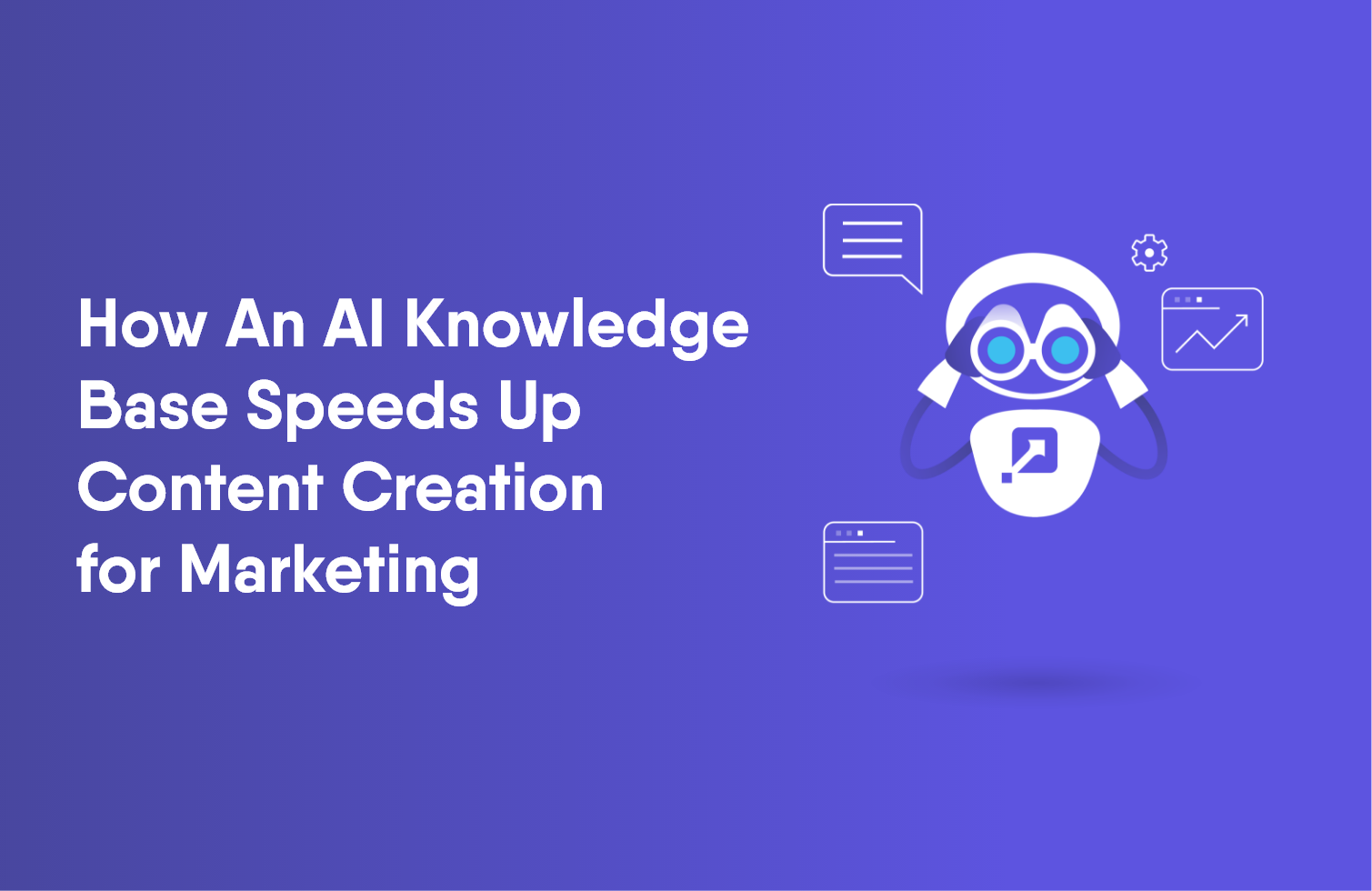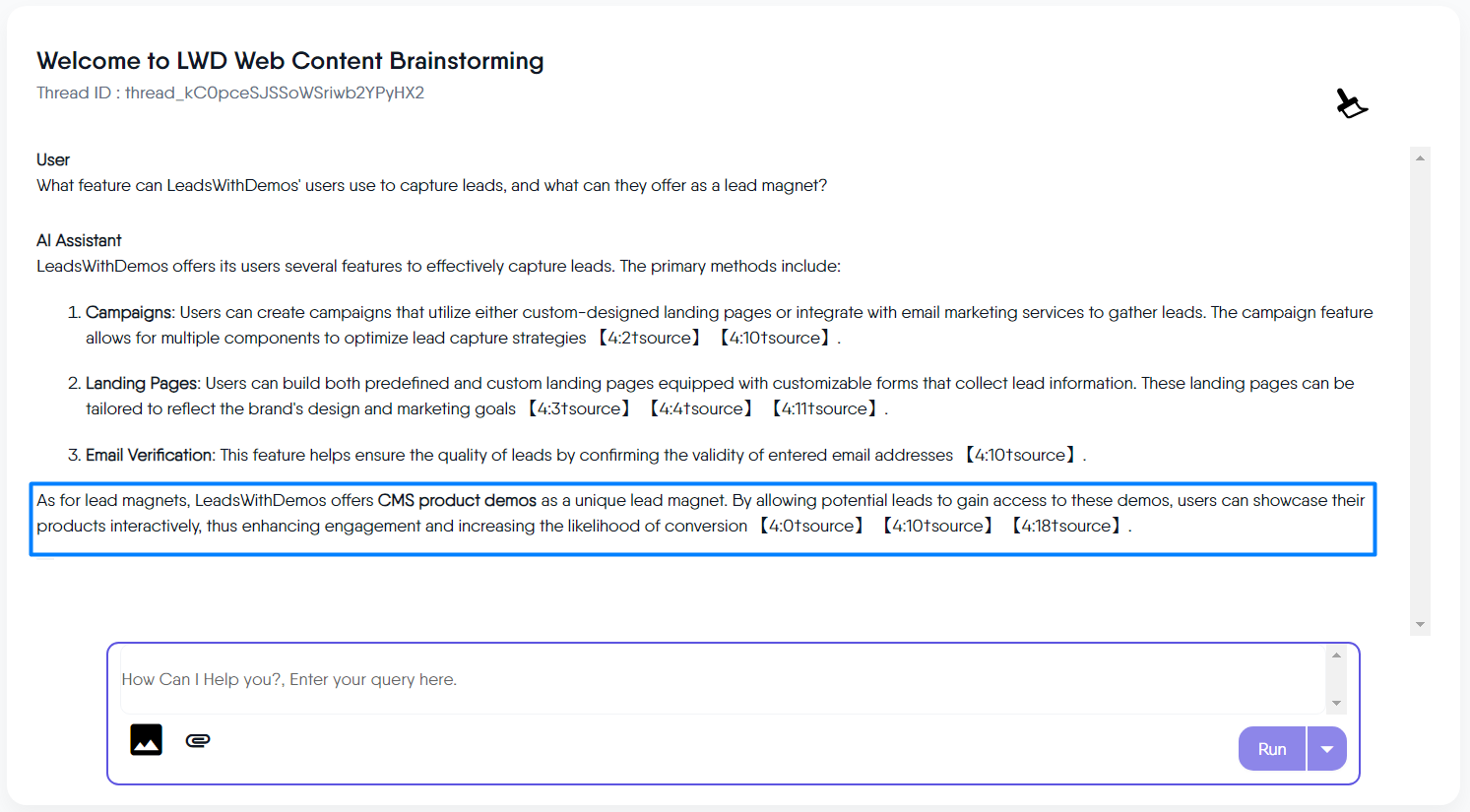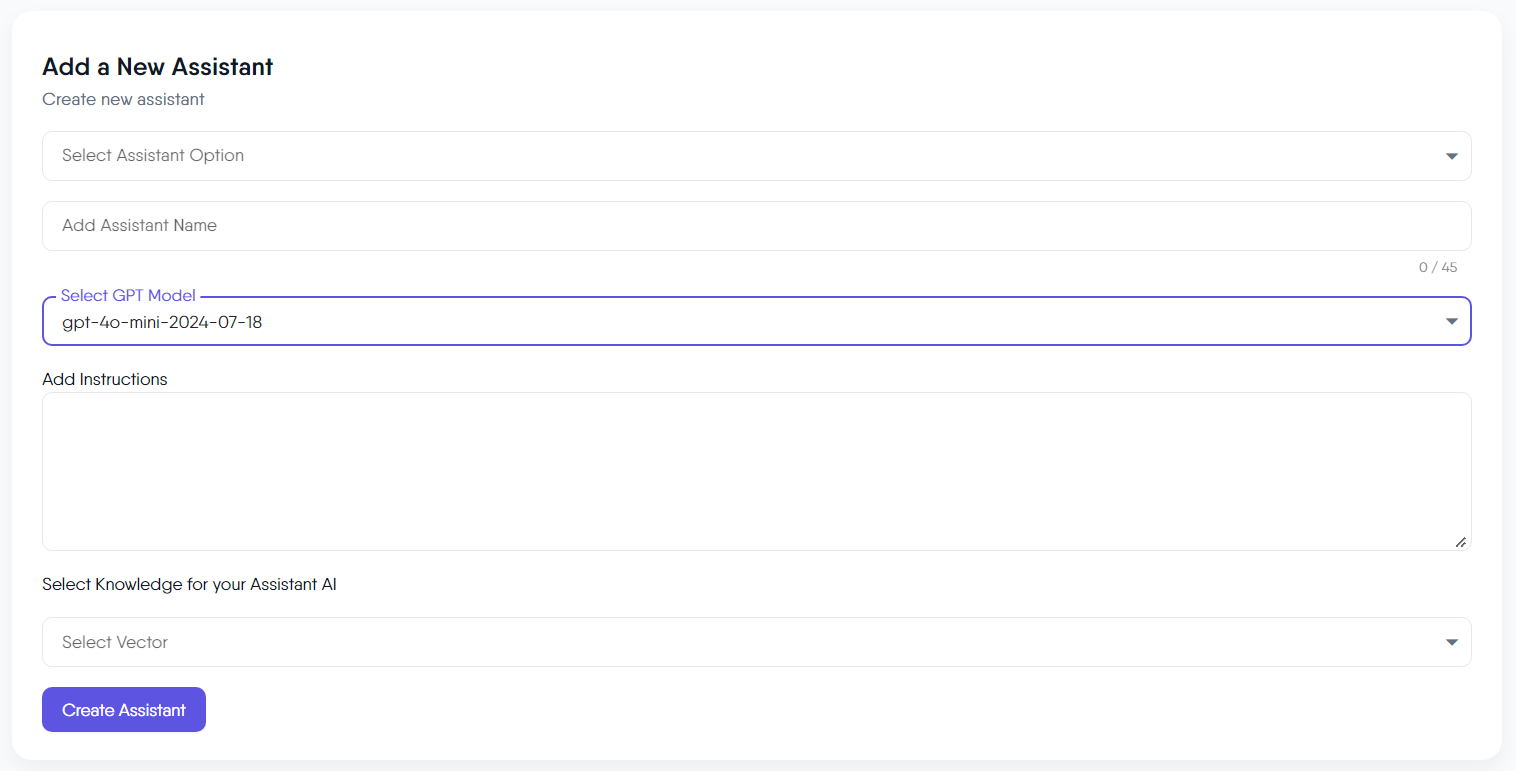How An AI Knowledge Base Speeds Up Content Creation for Marketing
When I decided to create my own SaaS to try and test new digital marketing strategies, I knew that creating content for it would be challenging for several reasons. For starters, I am not a native English speaker, and it would take me a long time to write web pages and blog articles. While I have the technical skills to put a website together, and promote my web application online, I was lacking in marketing content creation.
Then ChatGPT entered my life, and I realized it could definitely help with what I needed. Initially, I began creating website and product page content using existing AI tools, such as ChatGPT, Gemini, and even Jasper AI. However, I noticed something concerning: the content was very generic and, definitely, quite robotic.
While researching how to overcome that challenge of robotic and generic content, I came across something called RAG, which stands for Retrieval-Augmented Generation. Essentially, it uses knowledge you provide to the generative AI to generate more personalized outputs and content.
I was excited; now, I needed to provide custom content. This is when I decided to build out my SaaS’s entire knowledge base with AI first, to ensure tailored content for my marketing efforts. I agree with this LinkedIn post from Cassidy‘s CEO: “ChatGPT is great, but an AI knowledge base is better.”
I can now see how companies are providing AI knowledge base services because it offers plenty of benefits, not only in customer self-service but also in marketing content creation for businesses, especially if you are a solo entrepreneur. In this article, I would like to share how an AI knowledge base can improve marketing content creation.
The Role of an AI Knowledge Base in Simplifying Content Creation
An AI knowledge base is a centralized database for information that utilizes artificial intelligence to store, manage, and retrieve tailored information effectively. As I created the complete knowledge base content with AI, the material produced was specifically tailored to my SaaS. Now, this AI knowledge base plays a crucial role in simplifying the content creation process in several ways, including:
1.- Centralized Information Repository
By centralizing all relevant information, an AI knowledge base allows me, as a marketer, to easily access the data I need for creating content. This reduces the time spent searching for information, enabling quicker content production. It also helps the agency that is building my web app by allowing them to chat and find relevant information regarding my SaaS.
There are amazing tools on the market that allow you to have a repository of information, including OpenAI GPTs, NotebookLM by Google, and others. If I ask my AI knowledge base assistant the below question, I should receive an up-to-date response:
“What feature can LeadsWithDemos’ users use to capture leads, and what can they offer as a lead magnet?”
And.. It’s 100% correct.
2.- Efficiency in Tailored Content Generation
If you do not provide custom knowledge to a generative AI, it is likely that the output will be generic and unrelated to your SaaS. However, once you provide custom knowledge to the AI, it will allow for rapid and relevant content generation.
As a marketer, I can use AI with custom knowledge to:
- Draft SEO blog articles.
- Create product descriptions and pages.
- Develop feature and functionality pages.
- Generate Step by Step guides.
- Generate FAQs
This significantly speeds up the content creation process while maintaining quality and relevance.
Using my own application as an example, if I ask my AI knowledge base assistant the following question—which I will use when building and creating content for a feature landing page—I receive an accurate response:
“Could you provide me with three key benefits for LeadsWithDemos’ users when using a CMS product demo as a lead magnet?”
This allows me to start building content for that feature landing page quickly. Additionally, I can ask the AI knowledge base assistant to create a step-by-step user guide, and here is the response.
I’m ready to review, adjust (if necessary), and publish. Now, let’s move on to the next point.
Components Needed for an AI Assistant to Provide Relevant Content
Copywriting can often be a time-consuming task. However, if you have a knowledge base that is powered by AI, it can definitely help you create content for marketing. But which components are necessary for tailored content creation?
There are already good platforms in the market offering AI-assisted features that can improve the copywriting process, including:
- Add Custom Knowledge: This is essential for fully understanding your product or service, enabling more relevant content generation.
- Add Custom Instructions: You can provide guidance to the AI assistant on how it should behave, including tone of voice and style preferences.
- Add an AI Model: You can switch between different models, ensuring access to the latest advancements in AI technology.
- Adjust the Temperature and Top-p Settings: This allows the AI to determine how much randomness to incorporate into its generated content.
Integrating AI Knowledge Base into Your Content Strategy
Incorporating an AI knowledge base into your content strategy is crucial for maximizing its potential. Start by identifying key areas where the knowledge base can provide value. In my case, I use it for marketing content creation and plan to implement it for 24/7 customer self-support in the future.
Based on my experience with marketing and documentation creation, here are my top uses:
- SEO Content Creation: As mentioned before, I have been able to create product and feature landing pages for my LeadsWithDemos website, as well as over 100 documentation pages.For each of those pages, I need to create SEO metadata, including the SEO Title Tag and SEO Meta Description. As you can imagine, this could have taken me ages to finalize; however, I leverage my AI assistant with custom knowledge to help me with these tasks.
- SEO Content Translation: As we know, online content in English is very competitive. If we want to expand into other markets, we need to translate not only the product pages but also the entire documentation or knowledge base.
Thankfully, with an AI-powered knowledge base, you can achieve this with just a few clicks. You simply need to review the translation to ensure its accuracy and make adjustments if necessary.
- Transactional and Marketing Email Creation: With a simple prompt, you can ask the AI to provide you with a complete transactional or marketing email for nurturing your leads. I use this feature every day in my work, and the results are incredible.
- Ad Copy Creation: With a simple prompt, like the one below, I can receive suggestions for creating relevant ad copy for my ads, whether on LinkedIn, Facebook, or any other platform.
In future articles, I will discuss in detail how to apply each of the above strategies, including SEO content creation, SEO content translation, knowledge sharing, and more.







